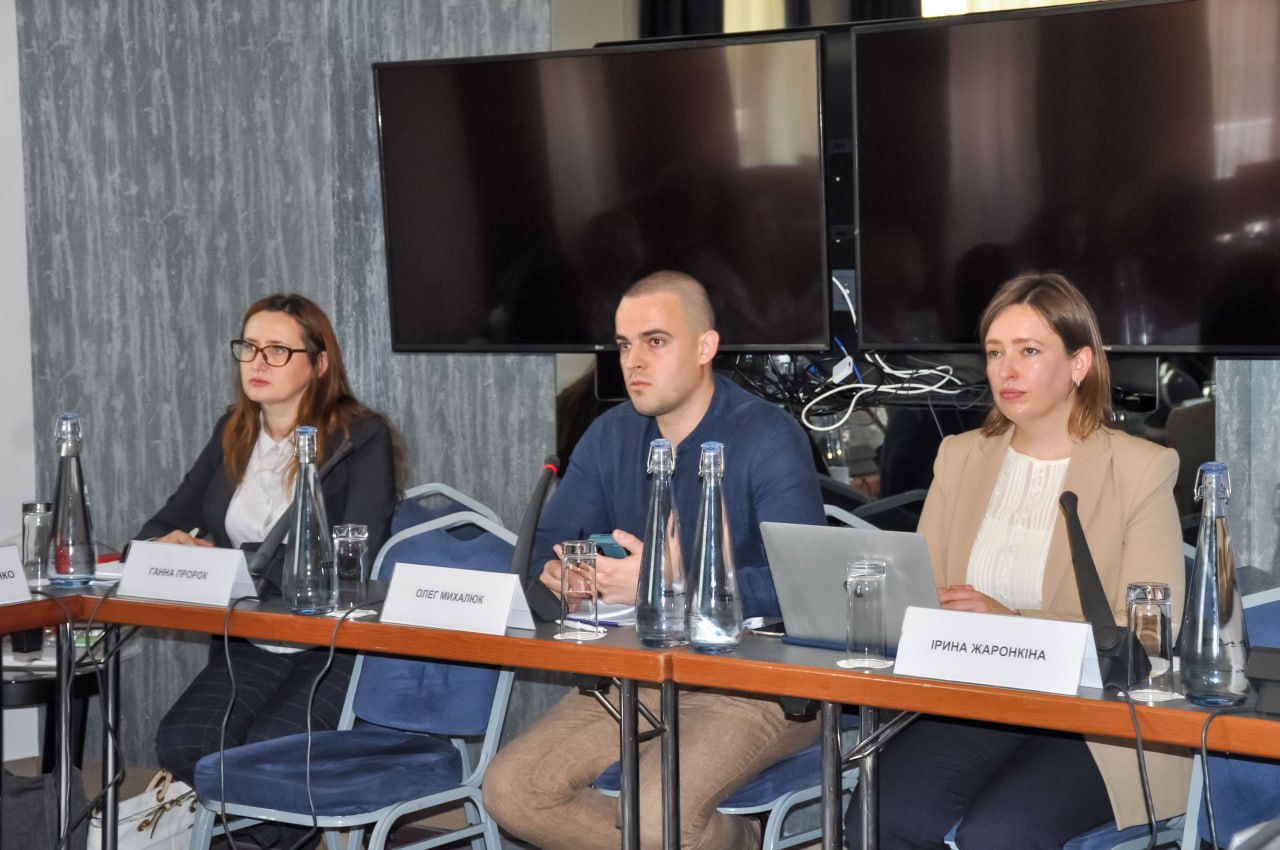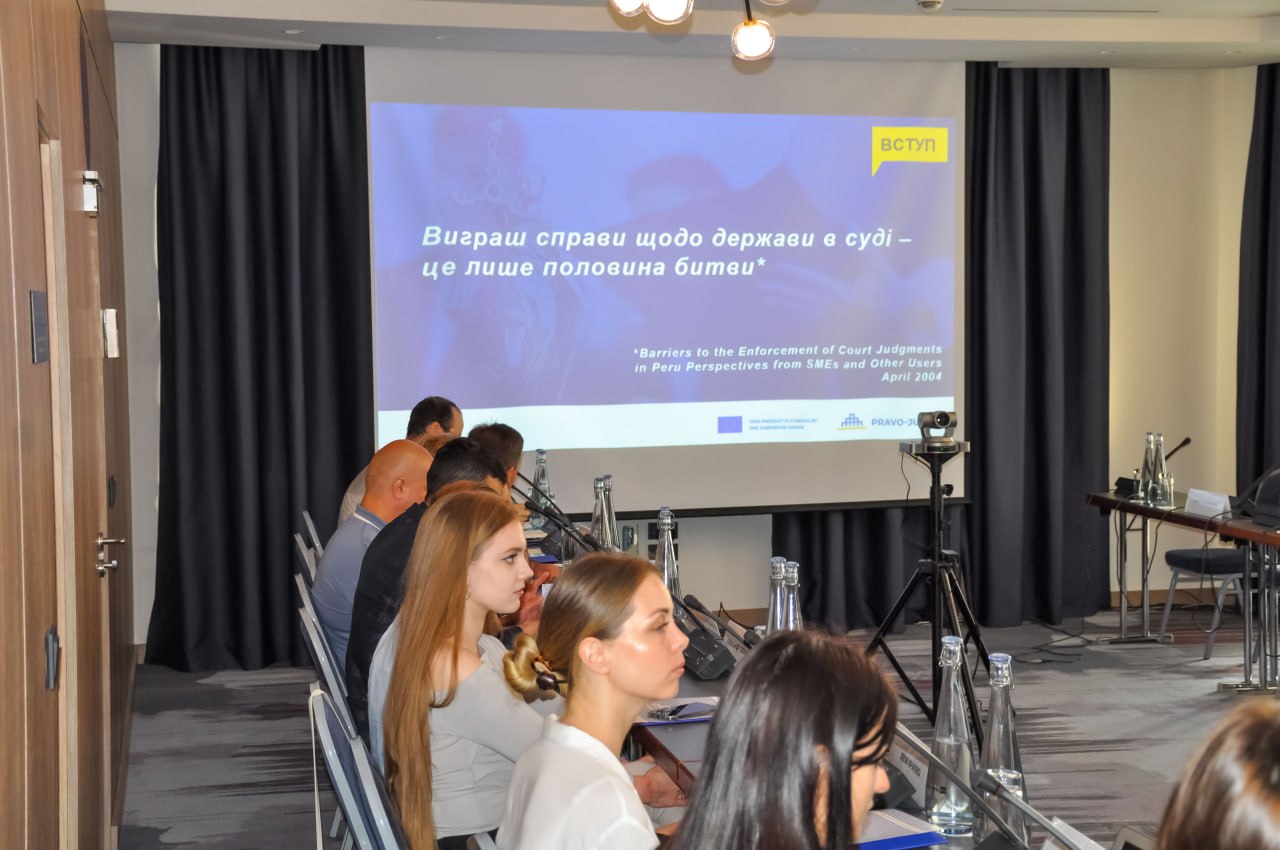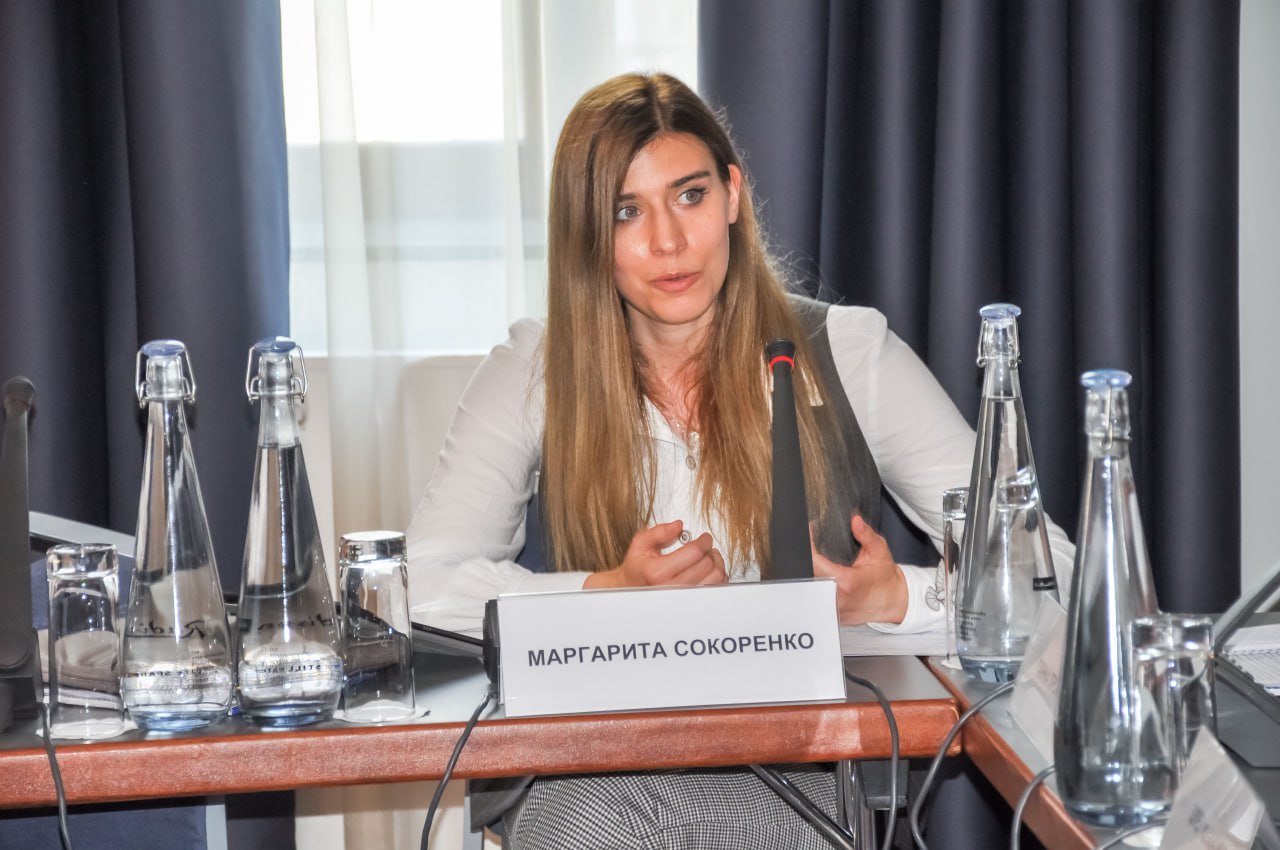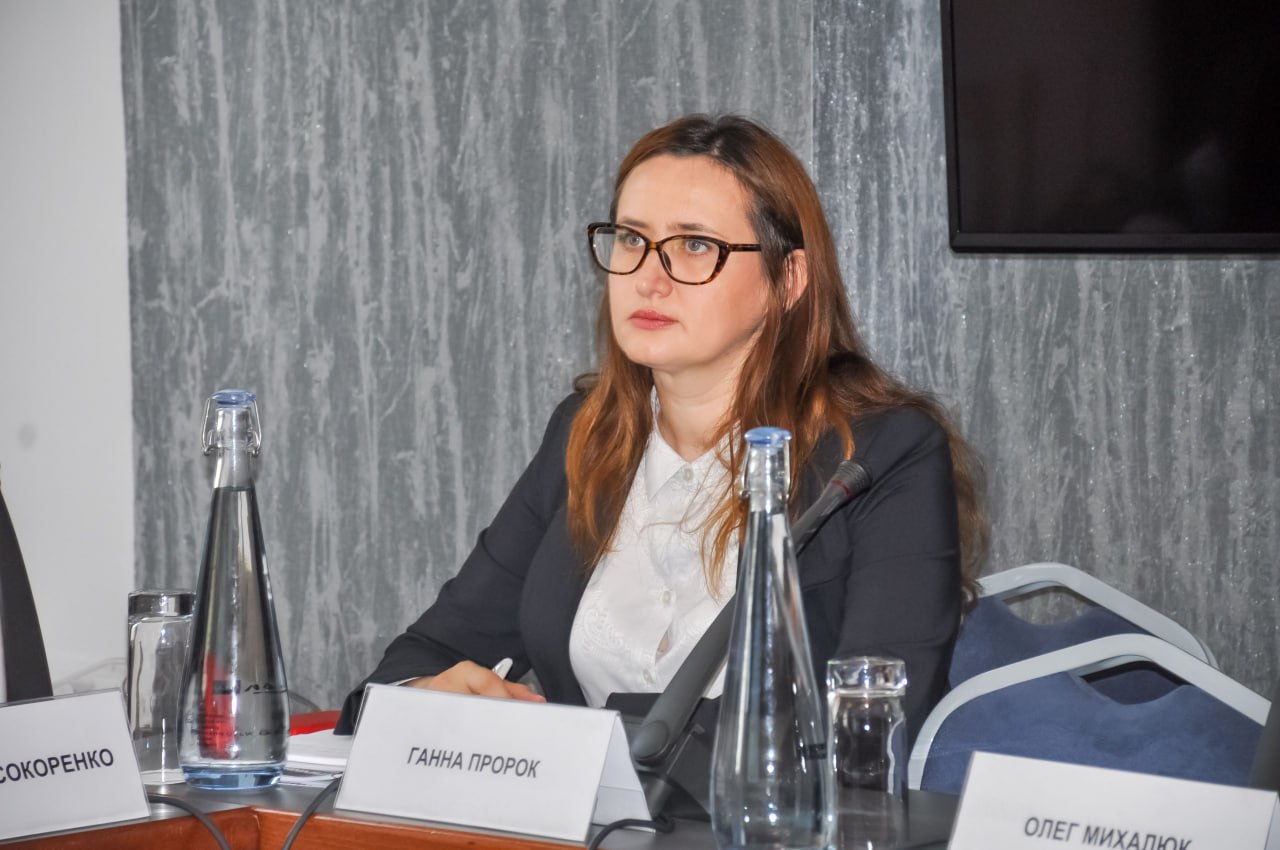EU Project “Pravo-Justice” presents analytical report on enforcing decisions imposing obligations against the state

On 21 June, EU Project Pravo-Justice held a roundtable discussion to present the key findings of its analytical report on enforcing decisions imposing obligations against the state. The report was produced at the request of the Ministry of Justice of Ukraine. The report was written by EU Project Pravo-Justice national and international experts Andrii Koshman, Oleh Mykhaliuk and Katilin Popov.
“The problem of non-enforcement of decisions imposing obligations against the state is very painful given ECtHR judgments, the huge number of cases pending in national courts and the ineffective tools used by the State Enforcement Service to enforce such court decisions,” said Iryna Zharonkina, Property Rights and Enforcement Component Lead of EU Project “Pravo-Justice”. “However, besides the problem in question, we have identified a number of other issues that prevent us from fully assessing the scale and consequences of non-enforcement of such decisions. This includes, first of all, the fact that the judiciary and executive authorities do not have a system for collecting information on the number of such decisions, their classification, and monitoring their enforcement.” She added that although the study focused on enforcing decisions imposing obligations in cases where the state is the debtor, it is necessary to investigate the problem of non-monetary judgments in general.

Oleh Mykhaliuk, Key National Expert of EU Project “Pravo-Justice”, explained the methodology of the report.
“When we started working on the report, we faced a number of obstacles in terms of methodology. The problem researched is so far-reaching for Ukraine that it was very challenging to choose the right approach to identify the key issues on which the recommendations will depend,” said Oleh Mykhaliuk. The expert emphasised that enforcing decisions imposing obligations has not been widely researched.
According to Oleh Mykhaliuk, the majority of the decisions analysed in the report are those issued by administrative courts. The decisions analysed made it possible to distinguish three categories depending on the way the court decision was not enforced:
- Passive non-enforcement.
- Practical impossibility to enforce a court decision.
- Active non-enforcement of a court decision, which may include mimicry of enforcement or actions that contradict the court decision.
Oleh Mykhaliuk said that the recommendations proposed in the report are based on global principles of enforcement and IFES best practices.
“We have analysed these principles, taken into account the legal and economic lay of the land in Ukraine, studied the experience of other countries, in particular Latin America, and formulated recommendations. Our proposals are aimed at a clear institutional framework for law enforcement and effective judicial control over the enforcement of a court decision, including proportionate sanctions for non-enforcement of a court decision within a reasonable time,” said Oleh Mykhaliuk.

Katilin Popov, EU Project “Pravo-Justice” international expert and Andrii Koshman, Project national expert, spoke in more detail about the findings and recommendations of the report.
“When we analysed the case law of administrative courts, we saw that there are many cases involving non-enforcement of court decisions by local self-government bodies. To solve this problem, we suggest amending draft law No. 7648 to impose fines on those members of the collective body who do not vote for decisions that would ensure the enforcement of court decisions. The experience of other countries shows that imposing sanctions is an effective tool to ensure a certain discipline in the enforcement of court decisions,” said Katilin Popov.
The second recommendation, according to the expert, is to empower private enforcement officers to enforce court decisions imposing obligations against public authorities and legal entities involving the state. The respective proposals are enshrined in “European integration” draft law No. 5660, which is being prepared for the second reading by the Parliament of Ukraine.
“Our third recommendation concerns introducing internal measures to ensure the enforcement of court decisions by public officials. In particular, there should be disciplinary and financial responsibility of public officials for non-enforcement of court decisions. Procedures should be developed according to which imposing a fine for non-enforcement of a court decision will have negative consequences within the framework of the annual performance evaluation of the official,” said Katilin Popov.
Andrii Koshman spoke about the recommendation to introduce a mechanism for direct enforcement of court decisions.
“This is the most understandable, but at the same time the most difficult recommendation to implement. The recommendation is that the legislation may provide for the possibility to replace an administrative act that was not adopted by an authority to enforce a court decision with a court decision,” explained Andrii Koshman. According to him, the practical aspect of this recommendation has been tangible in other countries, as after judges received such a tool, authorities became more willing to enforce court decisions.
Another recommendation presented by Andrii Koshman was to strengthen public officials’ knowledge and skills, in particular in terms of practical application of the principle of good governance or the principle of good faith.
“Improving the collection of the statistical data required and their substantive analysis is a recommendation that has been repeatedly voiced in Ukraine and is not only about solving the problem of non-enforcement of court decisions imposing obligations. The lack or insufficient amount of statistical data is an obvious and significant problem,” said Andrii Koshman, presenting the next recommendation from the report.
The expert also said that it would be advisable to analyse the efficiency of fines as a real incentive for the debtor based on real indicators.

In her speech, Marharyta Sokorenko, Commissioner for ECtHR, thanked the EU Pravo-Justice Project for preparing a thorough report on non-enforcement of court decisions imposing obligations and arranging a professional discussion on the recommendations proposed.
“The problem of non-enforcement or delayed enforcement of national court decisions is one of the most complex, large-scale and multifaceted for Ukraine. The Commissioner’s Secretariat has studied the report in detail. We are already taking many of the recommendations into account,” said Marharyta Sokorenko. She also elaborated on what is being done at the state level to address the issue.
Roman Babii, Member of Parliament, Member of the Parliamentary Committee on Legal Policy, stressed in his speech that the proposals of the report will be taken into account in the further legislative work of the Parliament.
“The recommendations proposed by EU Pravo-Justice Project experts will be a subject for discussion. However, given that they are quite reasonable, they will most likely be taken into account in when preparing the relevant draft laws, in particular, draft laws No. 5660 and No. 7648,” said Roman Babii.
Oleksandr Dvornichenko, representative of the Department for Enforcing ECtHR Judgments of Council of Europe, stressed that the report presented is extremely important in the context of enforcing the decision in Burmych v. Ukraine.
“The main problem of non-enforcement, in the opinion of the Committee of Ministers, is to find the root causes of the problem and to find practical and realistic measures that can help overcome this problem,” said Oleksandr Dvornichenko.

Hanna Prorok, Deputy Minister of Social Policy of Ukraine for European Integration, said that the Ministry of Social Policy is actively cooperating with authorities, including the Ministry of Justice, to find mechanisms for enforcing court decisions in pension and social security cases.
“There is an urgent need to revise social legislation in general. In cooperation with international partners, the Ministry of Social Policy is developing a new Social Code of Ukraine, which will enable us to restart the social sphere, comprehensively review existing social guarantees and direct resources to people who need the state’s assistance,” said Anna Porok.
When discussing the findings of the report, Andrii Avtorhov, a private enforcement officer, suggested that the enforcement of court decisions could be improved if the mechanism of astrent, a daily fine for non-enforcement of a court decision, is to be applied against an unscrupulous debtor. Kostiantyn Kolomoitsev, Head of the Secretariat of the Association of Private Enforcement Officers of Ukraine, spoke about the peculiarities of changing the procedure and method of enforcement of a court decision.
Oleksii Solomko, attorney-at-law, voiced his position on a cautious approach to monetisation of court decisions imposing obligations.
Oleksandr Syvokozov, Deputy Head of the Association of Private Enforcement Officers of Ukraine, drew attention to the need to improve the judicial control mechanism: judicial control should not be limited to control over the enforcement officer, but should rather be aimed at enforcing court decisions.
Viacheslav Panasiuk, EU Project “Pravo-Justice” , national expert, voiced further recommendations for the enforcement of national court decisions.
“ When it comes to enforcing a court decision where the debtor is a private sector entity, astrent is likely to be effective. If the debtor determined under a court decision is the state or a state body, it is necessary to develop legislation to enforce such decisions - to clearly define how a particular authority should act to enforce a particular decision. If certain officials do not comply with a court decision, the problem should be solved via labour relations - simply terminating the employment relationship with such a person,” said Viacheslav Panasiuk.
You can read the report here.